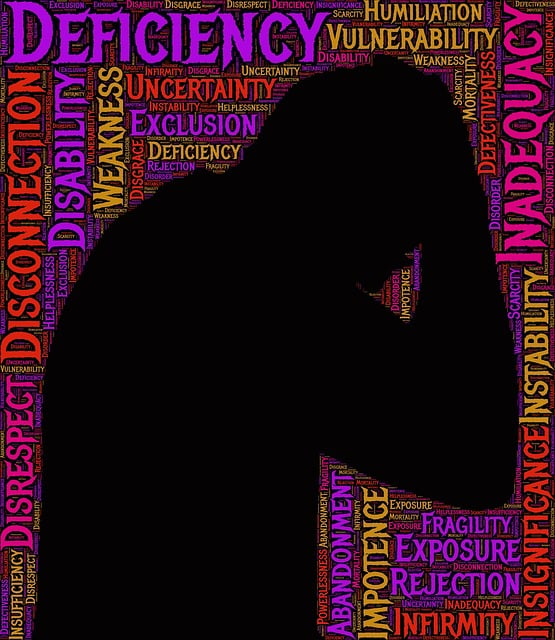Trauma from accidents or stressful events can lead to mental health issues like PTSD, anxiety, and depression. Denver Phobias Therapy offers specialized treatment for phobias rooted in trauma, utilizing mindfulness meditation, detailed assessments, and tailored coping strategies. Their comprehensive approach includes social skills training, stress management, and burnout prevention, addressing complex trauma needs. By combining exposure therapy, CBT, EMDR, journaling, and self-care practices, Denver Phobias Therapy fosters healing and enhances mental wellness, promoting community resilience through informed care.
Trauma support services are vital in addressing the profound impact of traumatic events on individuals’ lives. This article explores comprehensive strategies for providing effective care, with a focus on Denver Phobias Therapy as a key component. We delve into understanding trauma, its effects, and identifying it in clients. Additionally, we discuss building a system of trauma-informed care, offering practical insights for professionals aiming to enhance their services and improve client outcomes. Discover how Denver Phobias Therapy can be a game-changer in trauma support.
- Understanding Trauma and Its Impact
- The Role of Denver Phobias Therapy in Support
- Identifying and Assessing Trauma in Clients
- Effective Strategies for Trauma Support Services
- Building a Comprehensive Trauma-Informed Care System
Understanding Trauma and Its Impact

Trauma is a profound and complex experience that can have lasting effects on an individual’s mental health and overall well-being. It stems from various sources, including severe accidents, violent acts, natural disasters, or even prolonged exposure to stressful situations. The impact of trauma is multifaceted; it can manifest as acute stress disorder, post-traumatic stress disorder (PTSD), anxiety, depression, and other psychological issues. Recognizing the signs and symptoms is crucial for effective support.
In Denver, phobias therapy has emerged as a valuable tool in addressing trauma-related disorders. Mental health professionals conduct comprehensive risk assessments to understand the unique needs of each client. This involves assessing the severity of symptoms, identifying triggers, and exploring coping mechanisms. One proven method for managing trauma is stress reduction techniques, such as mindfulness meditation, which helps individuals cultivate present-moment awareness and regulate their emotional responses.
The Role of Denver Phobias Therapy in Support

Denver Phobias Therapy plays a pivotal role in trauma support services by specializing in addressing specific fears and phobias that often stem from traumatic experiences. This form of therapy provides individuals with effective tools to manage and overcome their anxiety, enabling them to regain control over their lives. Through tailored guidance and supportive environments, Denver Phobias Therapy helps clients explore the root causes of their phobias, fostering mental wellness and encouraging healthy coping mechanisms.
In conjunction with Burnout Prevention Strategies for Healthcare Providers, this therapy offers valuable support for those who have experienced trauma. By integrating Mental Wellness Journaling Exercises into their treatment plans, clients are equipped to reflect on their emotions and track their progress. This self-awareness is crucial in building confidence and resilience, which are essential elements in the journey towards recovery.
Identifying and Assessing Trauma in Clients

Identifying and assessing trauma is a critical step in providing effective support for clients dealing with various issues, including phobias and mental health disorders. At Denver Phobias Therapy, we recognize that trauma can manifest in numerous ways and often lies at the root of many psychological struggles. Our skilled therapists employ a range of assessment tools to gain a comprehensive understanding of each client’s history and current experiences. This involves exploring past traumas, such as childhood abuse or neglect, accidents, or other significant adverse events, which may have left lasting impacts on an individual’s mental and emotional well-being.
The process includes detailed interviews, standardized questionnaires, and behavioral observations to accurately diagnose conditions like post-traumatic stress disorder (PTSD) or complex trauma. By incorporating Social Skills Training and Depression Prevention strategies, our approach ensures that clients develop healthy coping mechanisms and build resilience. Additionally, we emphasize Stress Management techniques to help individuals navigate and reduce the impact of traumatic memories or triggers, fostering a safer and more supportive environment for healing.
Effective Strategies for Trauma Support Services

Trauma support services that are effective often incorporate a multi-faceted approach to address the complex needs of individuals dealing with traumatic experiences. One key strategy is incorporating Denver phobias therapy techniques, which have proven successful in helping clients face and overcome specific fears and anxiety stemming from trauma. This may include exposure therapy, cognitive behavioral therapy (CBT), or eye movement desensitization and reprocessing (EMDR) to help individuals process and resolve their traumatic memories.
Beyond individual therapy, mental wellness journaling exercises and self-care practices are essential components of comprehensive trauma support. Encouraging clients to keep a mental wellness journal allows them to track their progress, identify triggers, and reflect on their feelings in a safe space. Self-care practices tailored to each individual’s needs can include mindfulness techniques, relaxation exercises, physical activity, or creative outlets, all designed to promote healing and enhance mental wellness.
Building a Comprehensive Trauma-Informed Care System

In building a comprehensive trauma-informed care system, it’s crucial to integrate various services that address the complex needs of individuals dealing with traumatic experiences. Denver Phobias Therapy, for instance, plays a pivotal role in helping clients navigate and overcome specific fears and anxieties rooted in past traumas. This approach not only supports individuals but also fosters community resilience by enhancing mental health literacy and accessibility.
Mental Health Policy Analysis and Advocacy is essential to ensure that these services are equitably distributed and culturally sensitive. Incorporating Cultural Sensitivity in Mental Healthcare Practice guarantees that trauma support aligns with diverse cultural beliefs and practices, thereby improving client outcomes. Crisis Intervention Guidance should also be integrated into the system, providing immediate and effective response mechanisms for acute trauma situations. This holistic approach leverages resources to create a supportive ecosystem where individuals can heal and thrive.
Denver Phobias Therapy plays a pivotal role in providing effective trauma support services. By understanding the profound impact of trauma and adopting a comprehensive, trauma-informed care system, we can better identify and address clients’ needs. Utilizing strategies like those employed by Denver Phobias Therapy, we can foster healing and enhance well-being for individuals navigating the aftermath of traumatic experiences. This structured approach ensures that support services are not just reactive but proactive, ultimately building a more resilient and supportive community.













